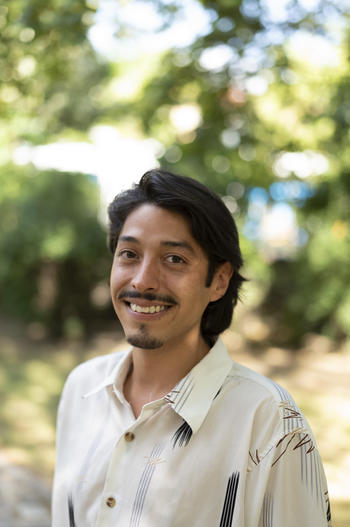José Francisco Hernández Reyes

International Research Training Group 'Temporalities of Future in Latin America'
Postdoctoral Fellow
History
Project: "Cochineal Dye: A Historiographic Study of Biodiversity and Cultural Value in Contemporary Ibero-American Consumption."
14195 Berlin
Education
|
05/2019 – 09/2022 |
PhD Candidate, International Research Training Group ‘Temporalities of Future’ |
|
10/2017 – 07/2018 |
Master in History from Europe to America - Powers, Societies, Cultures, Universidad de Granada, Spain |
|
02/2012 – 06/2017 |
Bachelor (Licenciatura) in Economics, Universidad Nacional Autónoma de México |
Work Experience
|
Since 11/2022 |
Postdoctoral Researcher, International Research Training Group ‘Temporalities of Future’, Freie Universität Berlin |
|
05/2019 – 09/2022 |
Researcher, International Research Training Group ‘Temporalities of Future’ |
|
01/2016 – 05/2019 |
Student Assistant, Faculty of Economics, Universidad Nacional Autónoma de Méxco |
|
01/2017 – 06/2017 |
Scholarship holder, Project: “The Daily Life of Missionaires in the northwest of New Spain“ (Prof. Dr. Bernd Hausberger), El Colegio de México |
|
11/2013 – 11/2015 |
Scholarship holder, Project: “The Latin American University: A Look through the Archive of the UDUAL“, Unión de Universidades de América Latina y el Caribe |
Project: "Cochineal Dye: A Historiographic Study of Biodiversity and Cultural Value in Contemporary Ibero-American Consumption."
My research examines the historiography of the cochineal insect, Dactylopius coccus, from a perspective that challenges traditional anthropocentric approaches, proposing instead a framework that explores the interaction between humans, prickle pear cactus, and cochineals. This perspective highlights the implications of biodiversity loss and the historical significance of plants and animals in Ibero-American cultural expressions such as artisanal dyeing, painting, traditional medicine, the food industry, and cosmetics. The study focuses on three key aspects: the induced global mobility, the translocation of organisms, and the motility of matter, tracing the journey from insect to dye and from dye to textiles, paintings, and other media. The research explores the biomaterial interfaces between cochineal insects, cacti, textiles, and paintings in various Ibero-American societies through an interdisciplinary approach. Ultimately, this historical analysis seeks to contribute to reflections on animal and plant studies while offering pathways to slow biodiversity loss in Ibero-America, evaluating human action's ecological, cultural, and artistic impacts.
Reyes, F. (2024). The Arab Mexicans before the Great War: Mobility Causes, Ottomanism, and Consular Aspirations, Nuevo Mundo Mundos Nuevos [online], Cuestiones del tiempo presente, URL: http://journals.openedition.org/nuevomundo/95882; DOI: https://doi.org/10.4000/11vr
Reyes, F. (2023). Un estudio de casos de quiebras de empresas en la primera generación de arabófonos de México y Argentina. América Latina En La Historia Económica, 31(1), 1–21. https://doi.org/10.18232/20073496.1388


